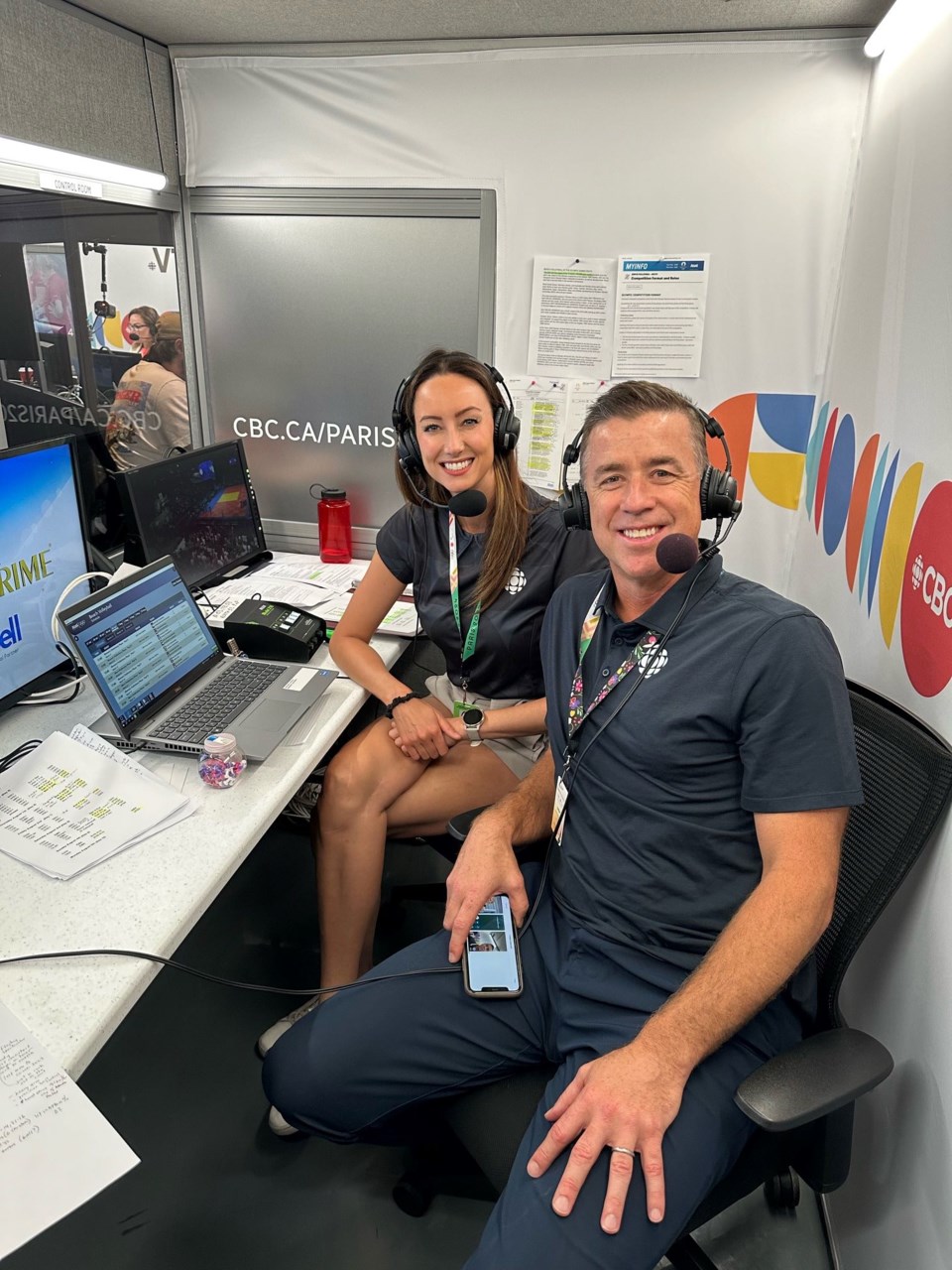The days were long and stacked. For the entire 14 days of the Olympics this summer, Mark Heese provided colour commentary for the beach volleyball events for the CBC, along with Claire Hanna.
It was nothing short of exciting, particularly when the Canadian women’s beach volleyball team of Melissa Humana-Paredes and Brandie Wilkerson went up against Brazil in the finals, losing the match with grace and walking away with an Olympic silver medal.
Beach volleyball was one of the top-viewed sports, and every day Heese — himself a beach volleyball Olympic bronze medallist in 1996 — returned to the broadcast centre to call four or five matches daily. Given that each one is about an hour long and preparation involves knowing each of the players, their statistics and current status, the days filled up quickly.
“This is the fourth time that I was the CBC beach volleyball analyst” providing colour commentary, says the longtime Aurora resident. He was also the voice behind the game for the London, Rio de Janeiro and Tokyo Olympic Games.
“What a lot of people don’t know is that we don’t actually go to the Olympics to do the commentary… almost all the spots are done remotely in Toronto,” Heese, now 55, explains.
Commentators are on-site for the odd sport, like swimming, but are otherwise working out of CBC’s Toronto broadcasting centre. It’s been like that since long before the pandemic, Heese explains.
Heese describes his Olympics experiences, including the three in which he competed, as he drives with his son, Markus Law-Heese, to Olympia Sports Camp where, together, they were running a volleyball clinic for the day and meeting young, ambitious athletes.
Heese competed in beach volleyball in Atlanta in 1996 where he won a bronze medal, Sydney in 2000 and Athens in 2004. He was unsuccessful making the 2008 team at age 39 and decided it was time to retire.
All seven Olympics were unique in their own way, he says. Even watching the screen from his Toronto broadcast booth, Heese could feel the absence of athletes in the Tokyo Olympics during the pandemic.
“In Paris, for example, it’s an amazing venue, 14,000 people in the stands” where fans were encouraged to express themselves, he says. “That was a lot of different from Tokyo, which was a little dull (without an audience).”
While calling the Rio Olympics, Heese was able to recall his own many experiences competing on Copacabana Beach, which some describe as the birthplace of beach volleyball.
“Rio was the opposite of Tokyo. There’s just so much history there,” he says. “For me, that was pretty cool.”
London, on the other hand, was very much like Paris in that both had a man-made beach right in front of an iconic landmark. In Paris it was the Eiffel Tower, in London it was Buckingham Palace.
In addition to the broadcasting opportunities, Heese has forged a life in volleyball beyond the court. His business, Canuckstuff, is a specialty sports retail company.
He and his Olympic coach, John May, are the volleyball directors at St. Andrew’s College and St. Anne’s School. They also run an organization called Volleyball United – which he says is all about uniting the global volleyball community in the higher purpose of “Serving the Greater Good”.
In 2015, Heese was inducted into the Aurora Sports Hall of Fame.
His son, Markus, a 21-year-old University of Windsor student who plays as a setter for the school’s indoor volleyball team, is an athlete in his own right. With Jonny Pickett, he recently became the 2024 beach volleyball Ontario champion in the men's adult division and placed third in the nationals.
Sure it would be neat to follow his father’s footsteps as an Olympian, he muses on the drive.
But his grandfather was an Olympian, too. Fred Heese competed in the canoe-kayak sprint event during the 1964 Tokyo Olympics, finishing seventh.
“As an athlete, the Olympics is the dream and the game is at the highest stage,” Markus explains. “It would be an honour for me to follow his footsteps… to make a history on my own would be special to me, too.”
Heese and his wife, Janet Law, moved to Aurora in 2001 to raise their family, which he said was a great experience. All of them also had the chance to play the sport that gave their dad so many opportunities and Heese coached with the Storm Volleyball Club for more than a decade.
Markus’ older brother, Mitchell, has moved onto other activities and is now living in Kelowna taking advantage of the outdoor adventure scene.
His sister, Mikayla Law-Heese, who is two years his senior, placed second at the nationals with her partner, Ruby Sorra.
And his youngest sister, Maddie, who is going into Grade 12, plays indoor and beach volleyball
For all of them and any other athletes he comes across, Heese has a basic message:
“You use sport as an opportunity to learn as much as you can about yourself. Don’t be afraid to reach for the sky… at some point you’re going to walk away from the sport and hopefully you got everything from that.”
